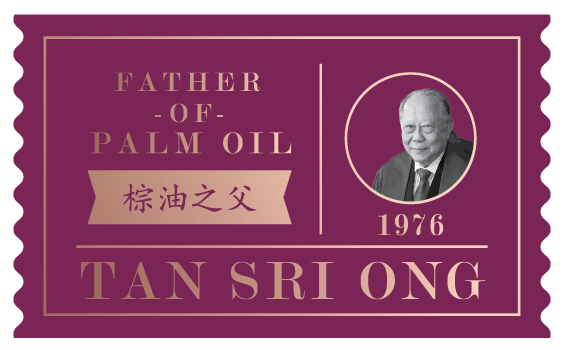Countless consumers are being misled to believe that palm oil is detrimental to heart health. There are many myths about palm oil, which is not valid. There are publications which were stating how past research pointed to the ill effects on the population. But, these kinds of statements are wildly inaccurate and baseless, mainly because there are many journals publishing of the endless benefits of palm oil. In this article, we attempt to answer some questions about palm oil by looking at some of the common myths surrounding it.
Myth No.1: Palm oil is unhealthy because it is high in saturated fat.
Palm oil contains almost equal amounts of unsaturated fats and saturated fats, (mainly palmitic and smaller amounts of stearic acids). In the body, it behaves more like a monounsaturated fat. It has virtually no adverse impact on your cholesterol levels. Comparable nutritionally to olive oil, it can be used for cooking at higher temperatures than olive oil and is ideal for those cooking applications when you don’t want the flavour of olive oil.
Myth No.2: Does palm oil contain cholesterol?
No. Palm oil, like most other vegetable oils and fats, contain only traces of cholesterol (<50 µg/gram or <5 ppm). This amount is so low that it has no significant physiological effects on health. Therefore, it could be “cholesterol-free”.
Myth No.3: The high saturated fat content of palm oil boosts “bad” LDL cholesterol and triglycerides
Fact: Palm Oil is a balanced oil, with 50% saturated and 50% unsaturated fatty acids. It is 100% free of GMOs. Studies have proven Palm Oil to have a neutral impact on cardiovascular health, neither increasing levels of good/bad cholesterol, similar to the impact of olive oil.
There is insufficient scientific evidence to use such statements as a general guideline for the whole world. A study was conducted to find out in-depth analysis by a group of researchers. The results showed how palm oil could instead have an effect of reducing total blood cholesterol along with ‘bad’ LDL-cholesterol. It also showed results of increasing the level of ‘good’ HDL-cholesterol.
Study has shown that palm oil and olive oil appear to have similar neutral effects on cholesterol. In a study published in the American Journal of Clinical Nutrition and presented at the European Palm Oil Conference (EPOC), researchers compared the effects of palm olein (from palm fruit oil) and olive oil on plasma lipid levels in healthy adults. In the randomized crossover study, 21 men and women, ranging from ages 19 to 44, replaced the fats and oils in their diet with palm olein (16:0) and olive oil (18:1), each for a 30-day interval. Researchers hypothesized that bad (LDL) cholesterol levels would be higher depending on the oil.
Instead, the participants’ cholesterol levels were not affected by alternating from palm olein to olive oil or vice versa. Both oils lowered participants’ plasma lipid profiles, despite palm olein containing saturated fats. The results agree with those of other leading researchers including work conducted by Professor KC Hayes and Dr. Pramod Khosla. Thus, this myth about palm oil is a misconception.
Myth No.4: Saturated fat in palm oil is harmful to cardiovascular and cerebrovascular health
Fact: Over the years, researchers have intensely studied palm oil’s effect on cardiovascular health, and the results initially baffled scientists on how palm oil can be so beneficial to the heart. Despite the content of saturated fat present in the oil, it protects against heart disease.
Studies showed that adding palm oil into the diet not only can remove plaque build-up in arteries, but it also reverses the process of plaque and prevent blockages.
Continuous study designed to see the effects of palm oil showed that saturated fat intake is not linked with a high risk of heart diseases like coronary heart disease, stroke, or cardiovascular disease but instead that some saturated fats are anti-atherogenic, i.e., protect against vascular disease. It’s crucial to learn that palm oil containing a balance of saturated fatty acids, monosaturated fatty acids, and polyunsaturated fatty acids are all anti-atherogenic, i.e., protects against pathologic cardiovascular disease. It’s not only a beneficial type of antioxidant but also potent cholesterol synthesis inhibitors. It means that it reduces the cholesterol found in blood a lot more than other oils like coconut oil, dairy, and animal fats.
Myth No.5: Increased palm oil consumption worsen stroke.
Fact: Studies show that vitamin E called alpha tocotrienol present in palm oil can help to reduce the effects of stroke by 50% by protecting your brain’s nerve cells. Not only that, but a two-year human clinical study also found that same “vitamin E tocotrienols support the brain’s white matter health by slowing the progression of white matter lesions. This helps the brain experience less damage due to stroke and recover more quickly.”
Myth No. 7: Palm oil is used to make margarine, which usually has trans-fat. Thus, palm oil must also have trans-fat.
Fact: Although this may seem like logical reasoning, it is not factual. Trans fats are created from the hydrogenation of unsaturated fats, which are most commonly found in plant oils. Margarine is made through this process but if its parent oil is palm oil, then it is free of trans fat. That’s because, unlike most other margarine products that contain trans-fat, margarine made from palm oil doesn’t require hydrogenation as the oil is naturally semi-solid at room temperature.
Myth No.8: Palm oil is bad for frying.
Fact: Palm oil has a high smoke point of 235°C, and it is a naturally stable plant oil that can remain stable at frying temperatures of between 160°C and 200°C. Studies have found that palm oil can maintain its chemical composition at very high temperatures, making it suitable for frying and baking foods at those temperatures. Furthermore, plant oil has a long shelf life because it can resist oxidation that causes rancidity at high temperatures.
Myth No. 9: Palm oil is not nutritious because it’s just fatty acids.
Fact: Research has shown that palm oil contains high level of pro-vitamin A carotenoids and vitamin E tocotrienol, which exhibit health benefits such an anti-inflammatory as well as neuro-protective and cholesterol-lowering effects. Tocotrienols are being researched for their benefits on several serious health risks including cardiovascular disease, stroke, and cancer. One preliminary study even found that palm-derived tocotrienols may slow your body’s ability to create new fat cells and kill off some of the fat cells you already have.

